Submitted by WA Contents
Organically-arranged brick walls form biophilic Asmalay house by Blurring Boundaries in India
India Architecture News - Aug 29, 2023 - 10:55 4118 views
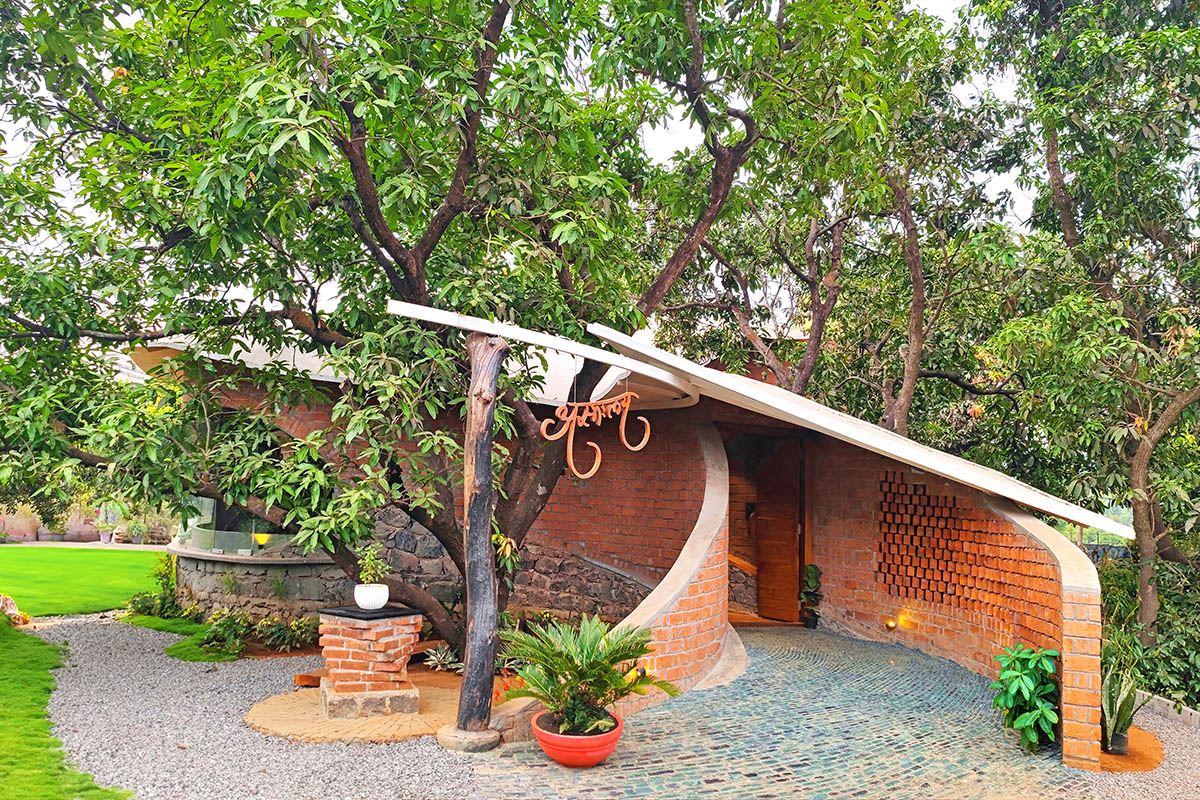
Organically-arranged brick walls have formed a biophilic residence shaped around five mango trees on the site in Maharashtra, India.
Named Asmalay, the house was designed by Indian architecture practice Blurring Boundaries, led by Shriya Parasrampuria and Prashant Dupare.
The 2,000-square-foot (186-square-metre) house is located within a lush tapestry of mango trees in the coastal town of Alibag near Mumbai.
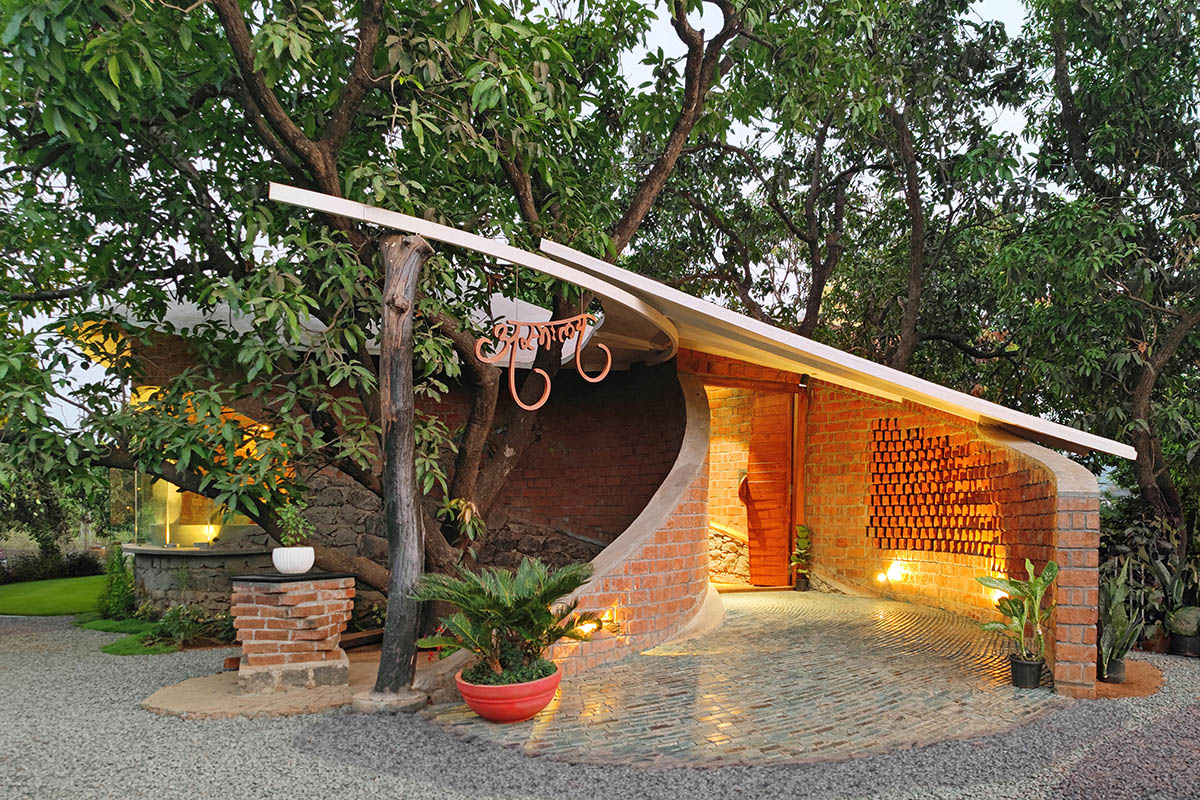
Blurring Boundaries envisioned Asmalay house as a biophilic home to embrace the harmonious interplay of architecture and nature.
While it is not clear where the house begins and ends, the flowing indoor and outdoor spaces trigger a sense of curiosity and force users to explore.
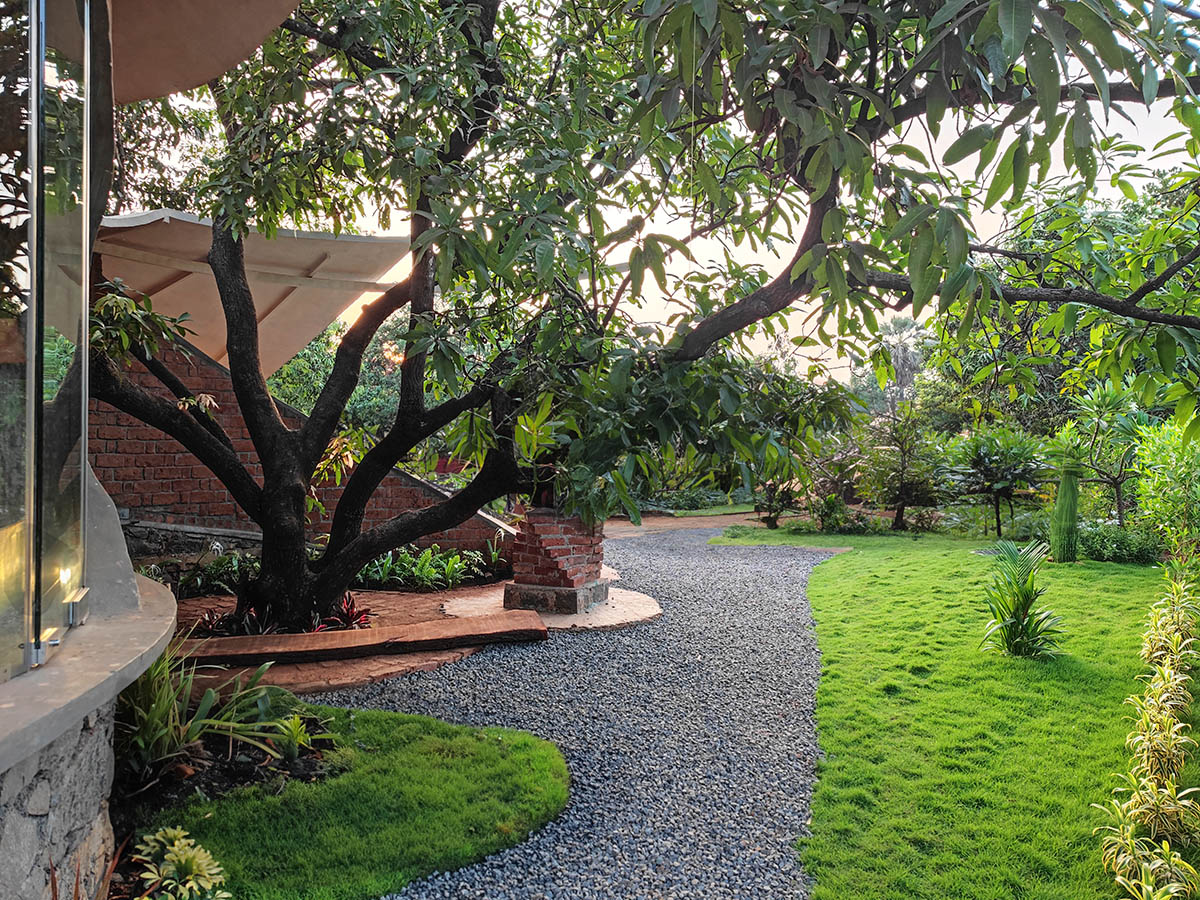
The studio paid attention to the existing mango trees on the plot and placed the curved brick walls around them to design interior spaces.
The program of the house consists of a verandah, living room, dining, kitchen, toilet, bedroom, deck, kitchen garden, bio digester tank, caretaker unit and backyard.
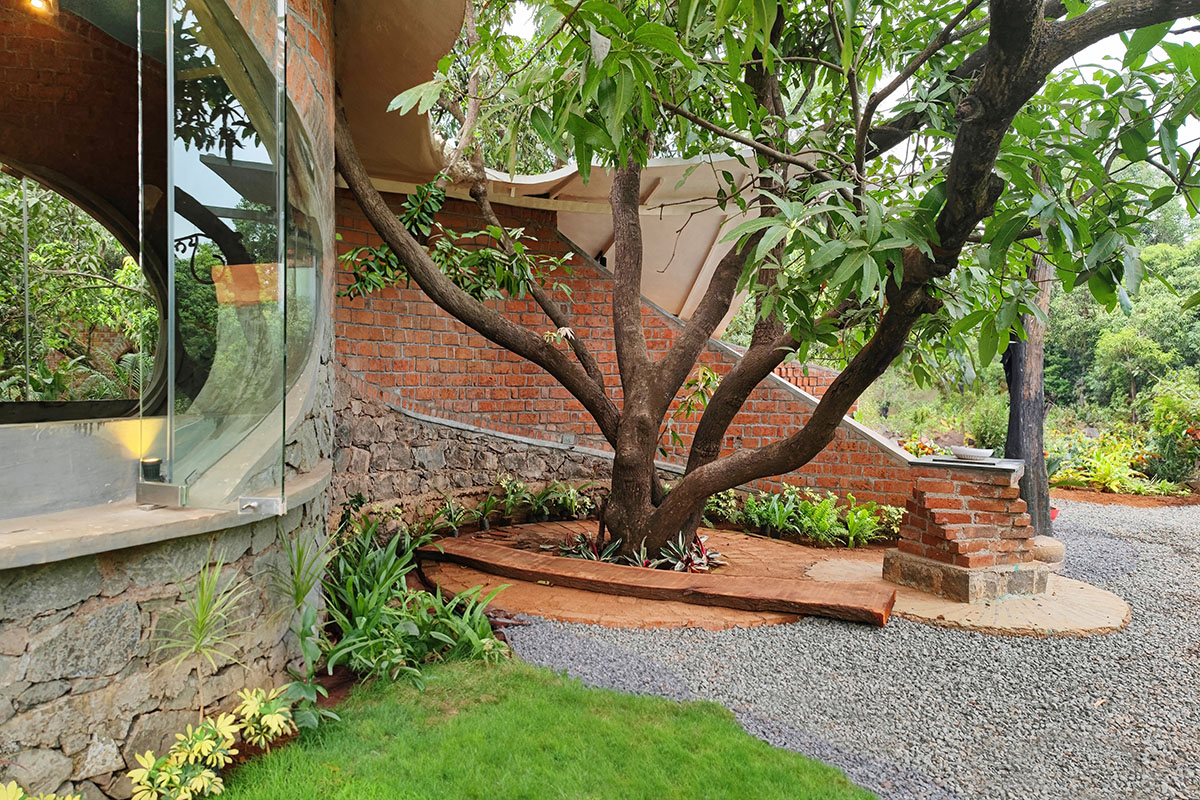
From the beginning to the end, the studio devised a thoughtful fusion of form and function. According to the architects, "the design seeks to create immersive experiences where spatial arrangement, materials, lighting, and colors synergize to establish a sense of harmony."
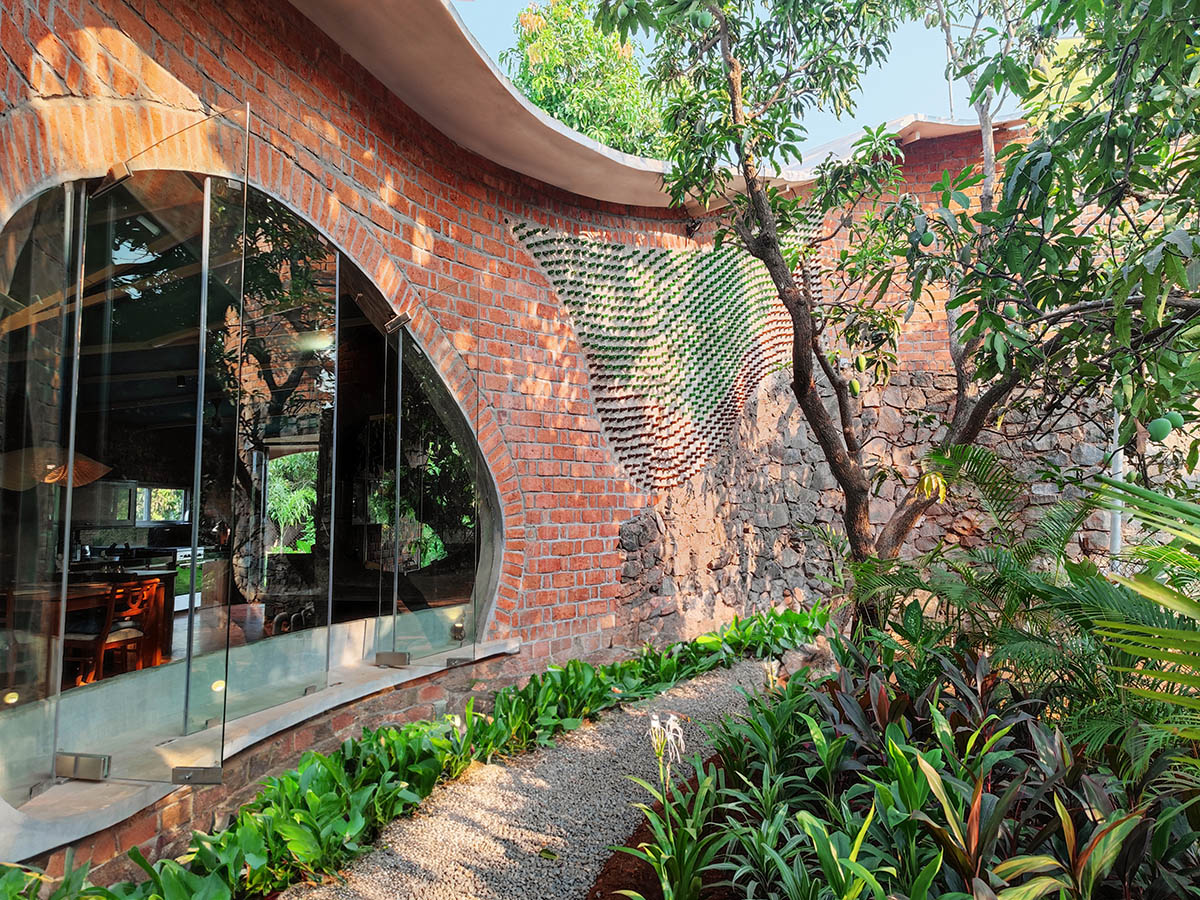
The residence was made of natural and recycled materials, taking cues from its own context. The residence integrates passive design methodologies and position itself as a celebration of sustainable living.
The design concept is centered around organic curves harmonized with five mango trees on the land. The house features an open floor plan and interconnected spaces to offer versatility and adaptability.
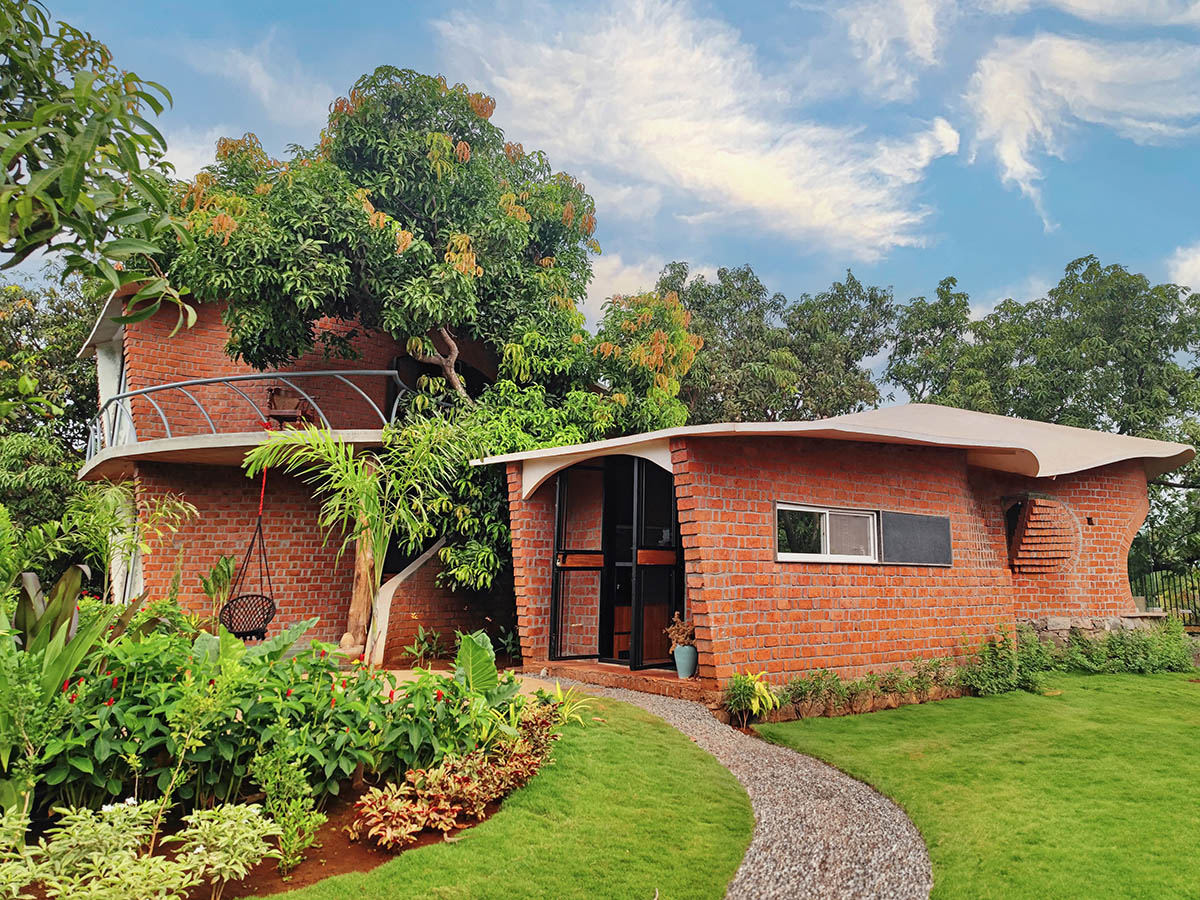
Avoiding to set boundaries inside, each area is seamlessly flowed to the next along gracefully curved walls, thus "forging a unified and uninterrupted spatial ambiance."
"Upon entering, a curved brick jali evokes curiosity, leading to a captivating spatial shift into multifunctional living and dining zones," said the studio.
"The dining space effortlessly merges with an open kitchen, while the communal areas maintain an understated yet utilitarian aesthetic."
"The upper floor, housing private quarters, maintains a consistent soothing textural palette, in continuity with the ground floor," the office added.
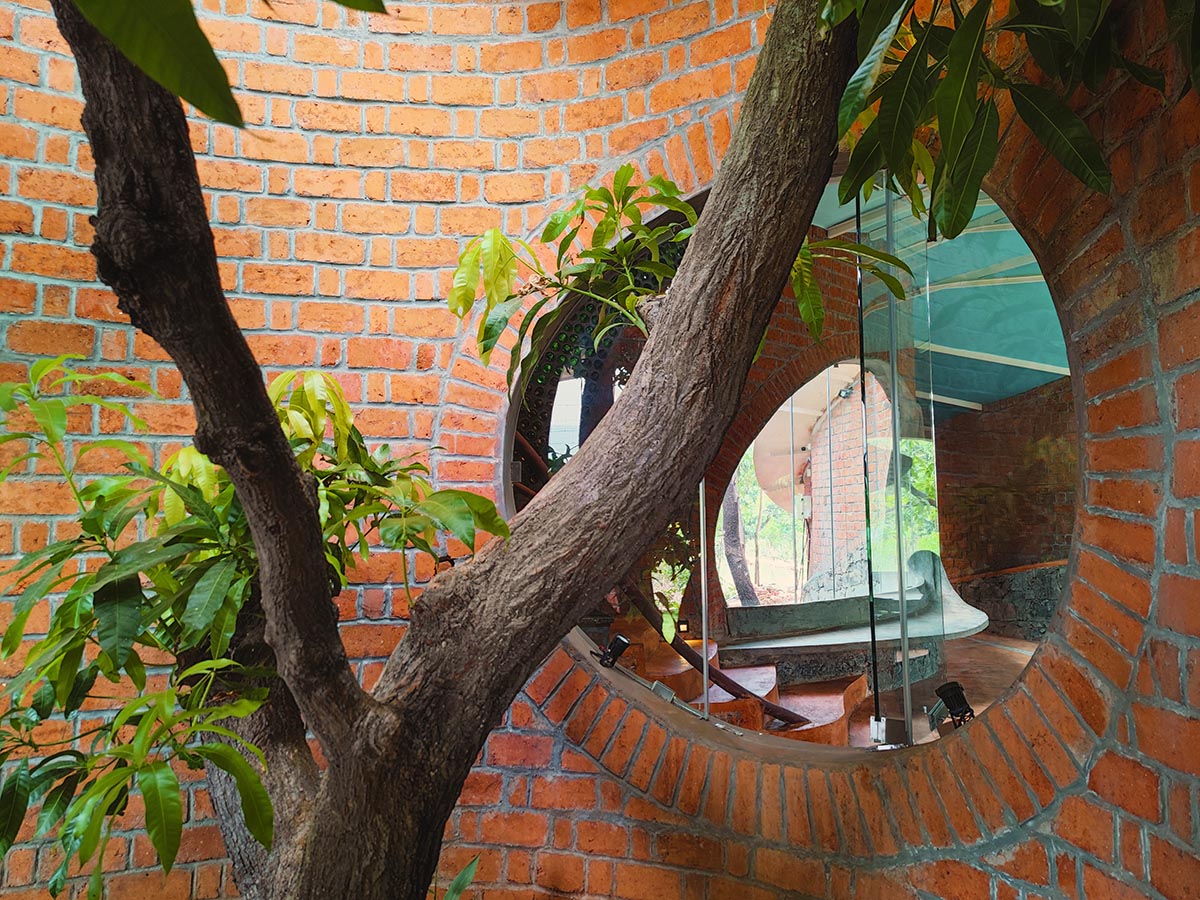
The hosue is strategically positioned with orientation and prevailing winds, the dwelling boasts naturally illuminated and well-ventilated spaces.
The curvature of the openings is also aligned with the orientation and the existing trees' configuration. While the brick arched windows facilitate daylight and air circulation, fostering a comfortable internal microclimate that shields against escalating summer temperatures.
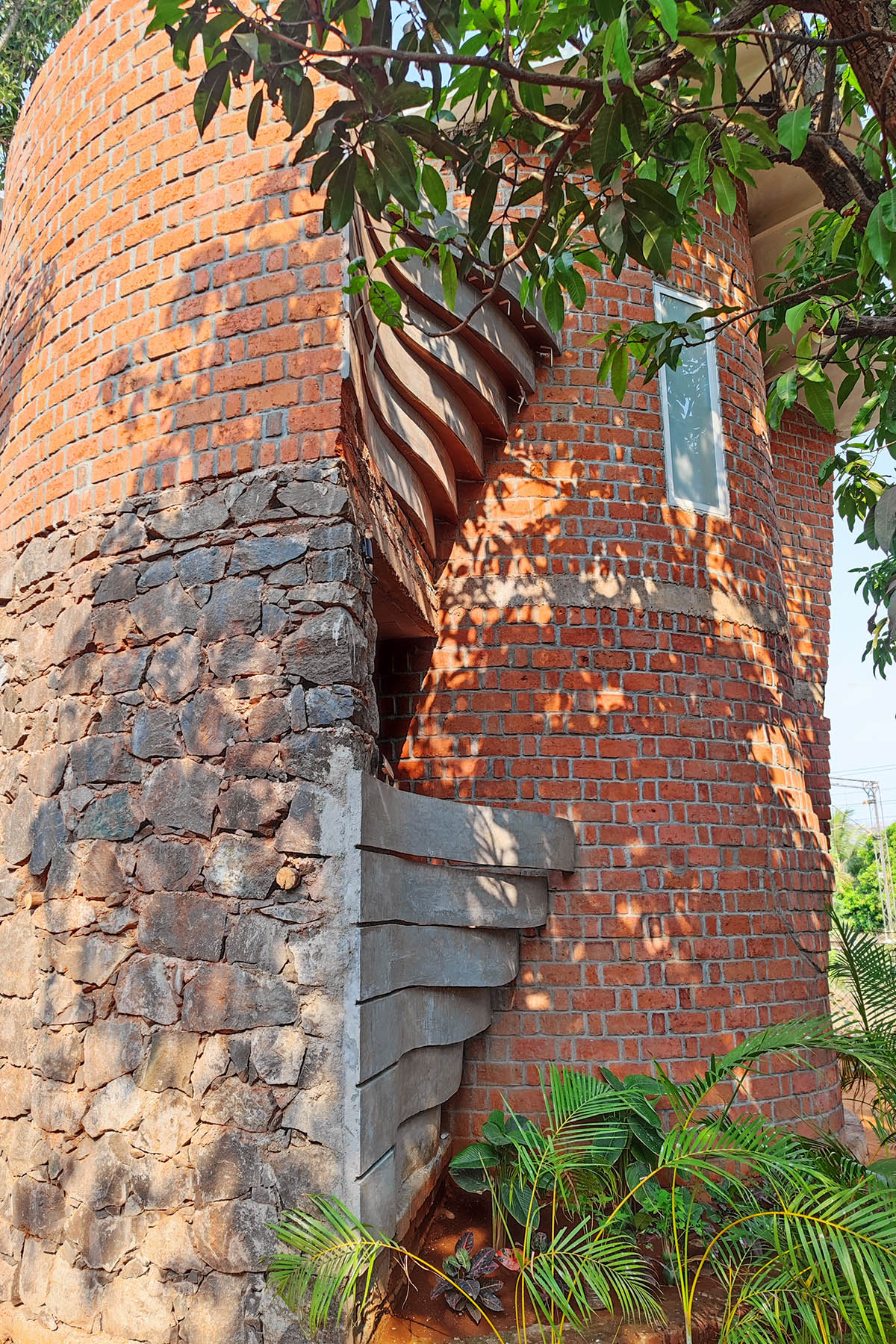
On the roof, made of ferro cement, was oriented towards the north, and was meticulously designed to embrace the existing trees. Thanks to its expansive canopy, the canopy provides natural shading, negating the need for air conditioning.
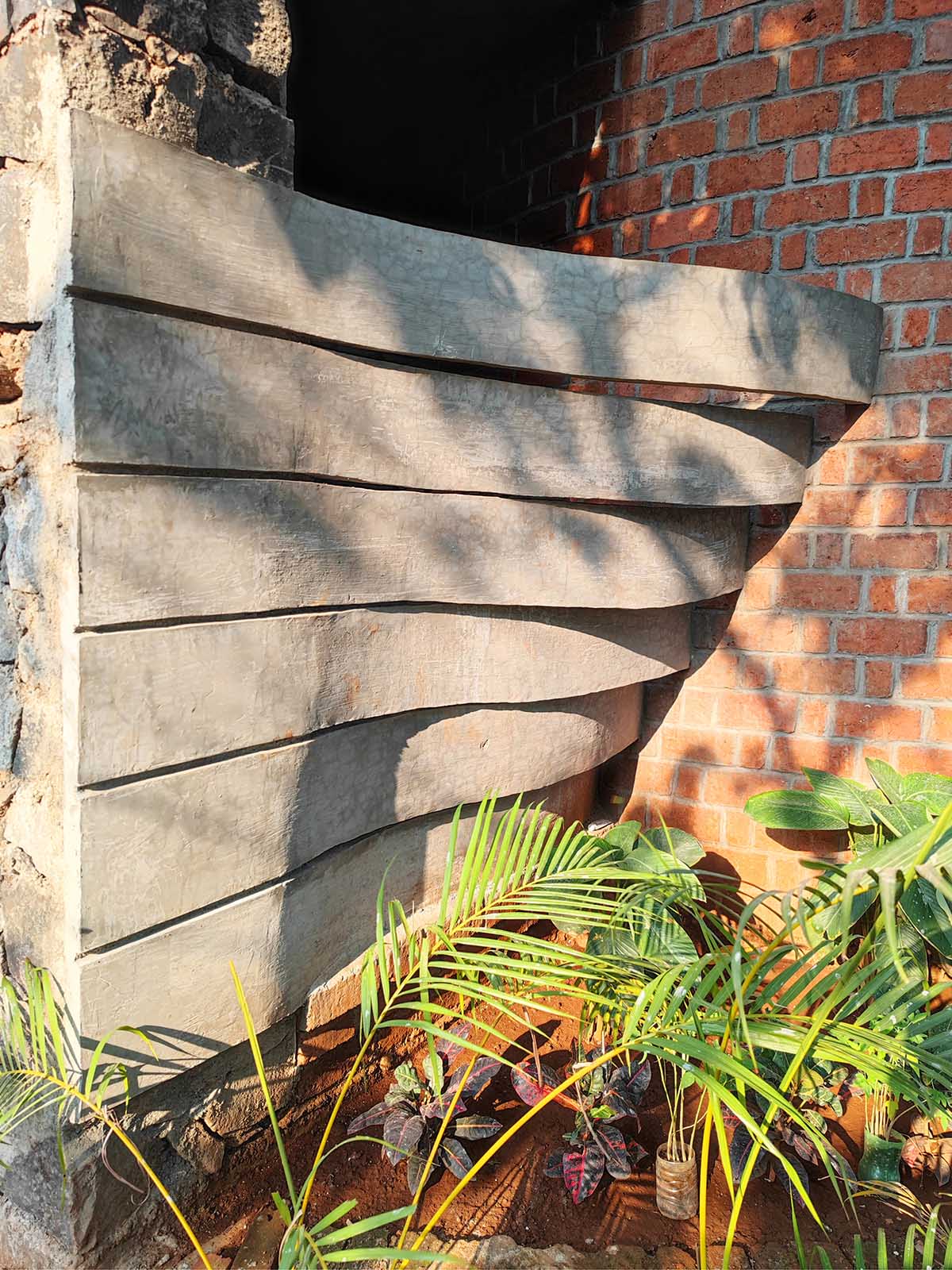
"Earthy hues are imparted by the utilization of materials like brick and stone, thoughtfully combined with unique spatial arrangements," the architects added.
"The adoption of rat-trap brick bonds not only enhances material efficiency but also contributes to the brick structure's insulation."
"The expressive potential of brick is harnessed through textured wall treatments, corbelling, and distinctive apertures, wherein light and texture collaboratively emit a warm ambiance," said the office.
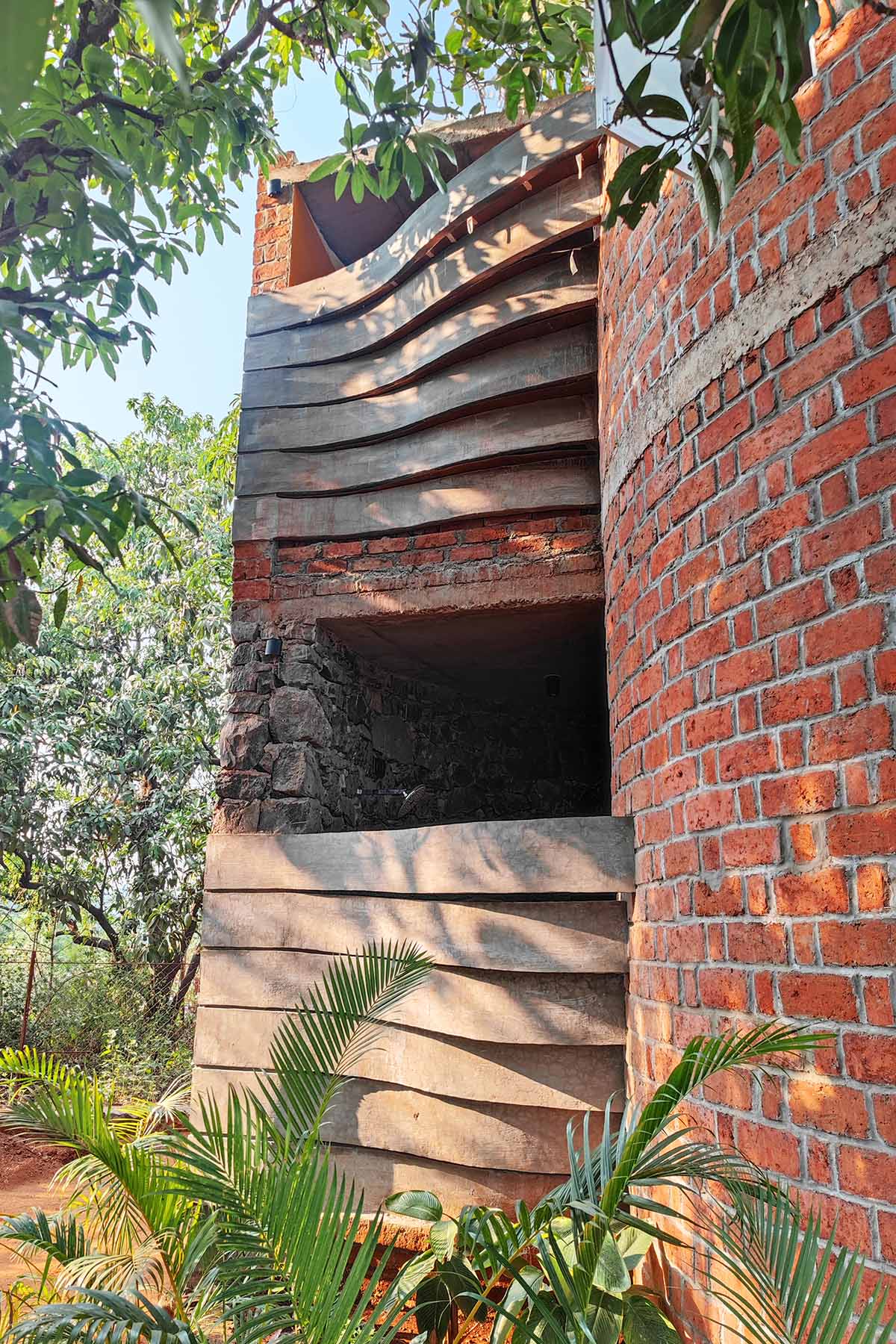
The architects created a recycled glass bottle wall on the ground floor, adjacent to the staircase, which introduces a playful infusion of daylight. It also orchestrates an interplay of light and shadow that enriches the earthy color palette.
Complementing the structure, inbuilt ferrocement furniture exemplifies a harmonious blend of functionality and design. This approach of 'selective detailing' generates a juxtaposition with the blue-toned ceiling, engendering contrast and harmony.
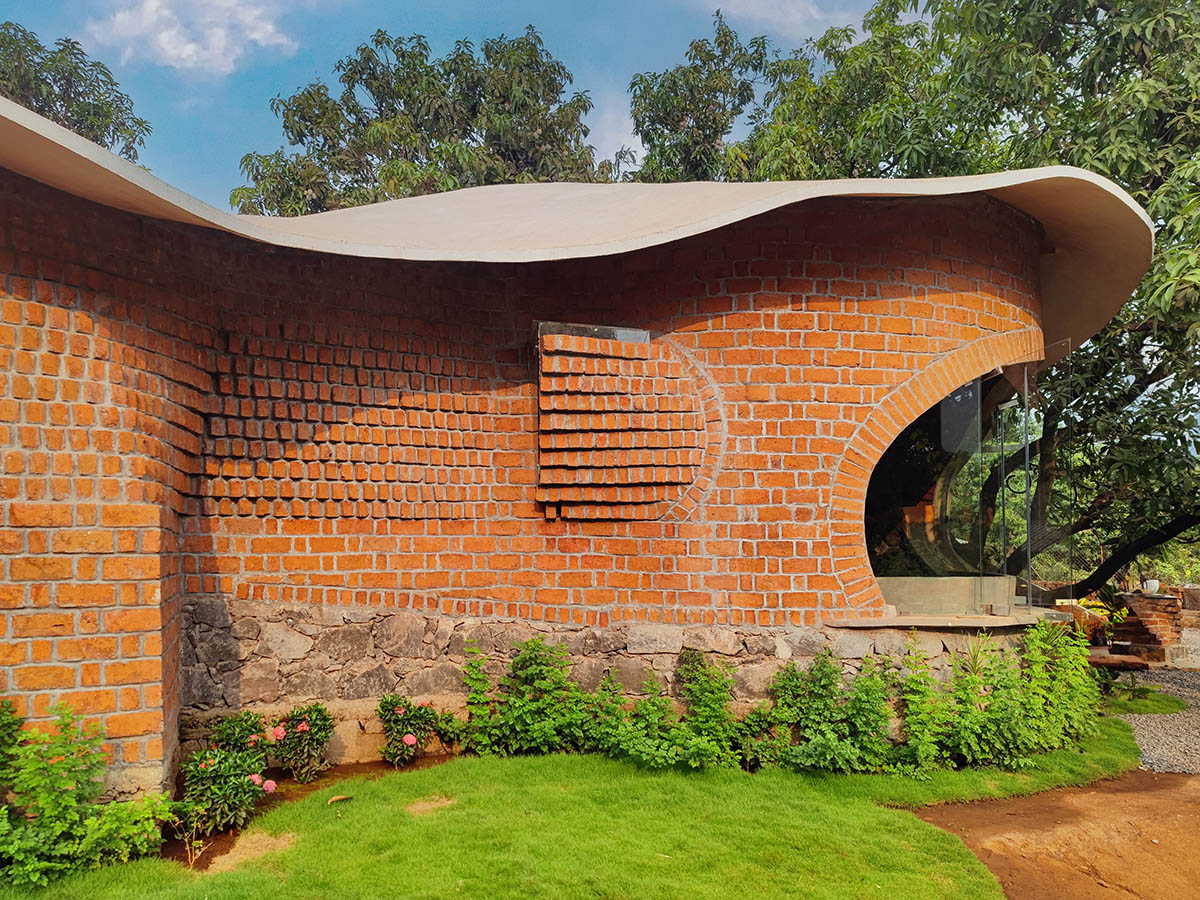
As the architects explained, "the architectural composition dissolves the boundary between interior and exterior, effectively connecting occupants with their natural surroundings."
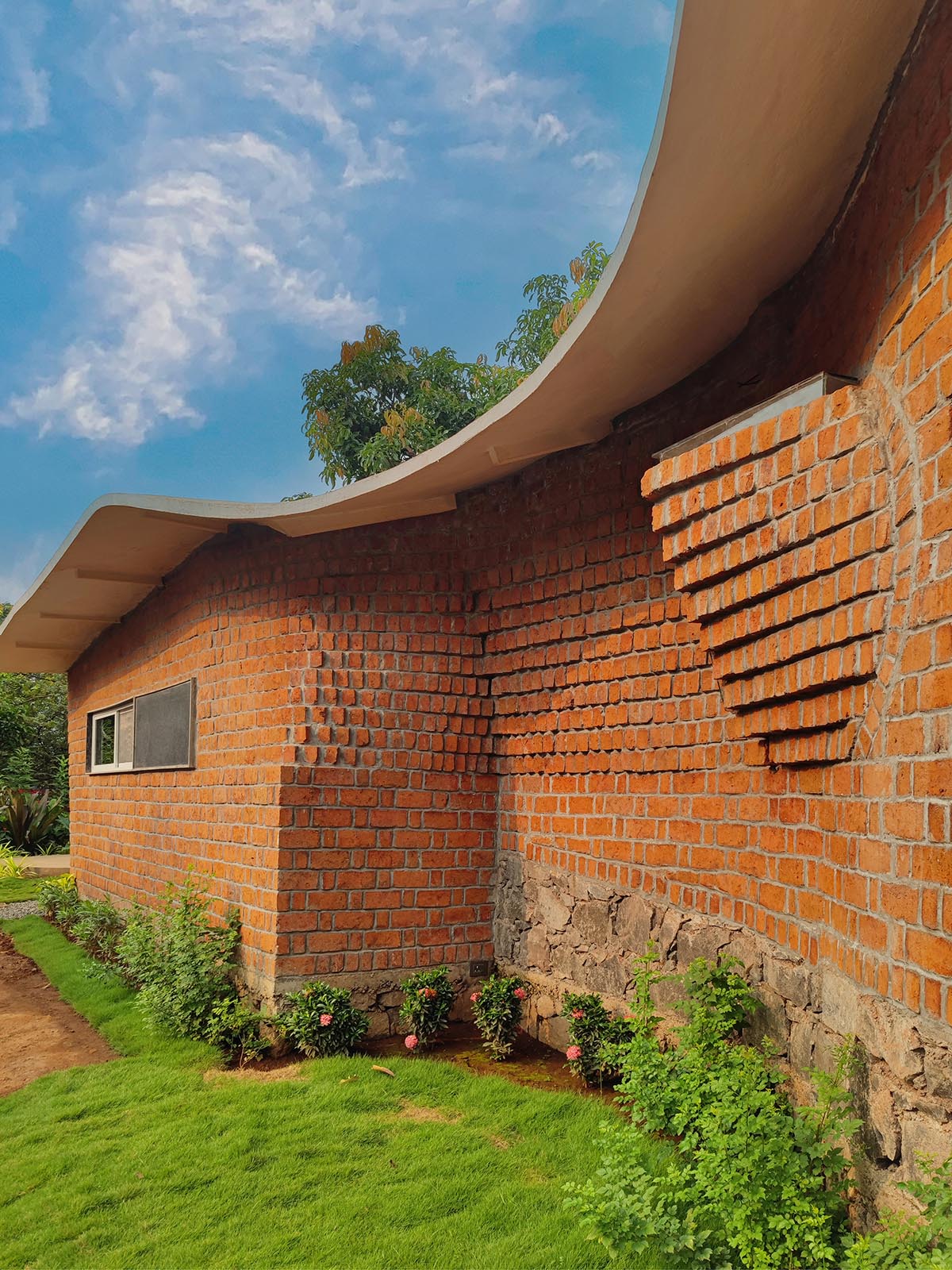
"Asmalay house stands as a testament to conscientious sustainability, a result of meticulous endeavors to create an ecologically mindful abode," the office added.
"This dwelling embodies a prospective vision of human habitation coexisting harmoniously with the environment, showcasing how architectural ingenuity can give rise to spaces that nurture both the human spirit and the planet," the studio concluded.
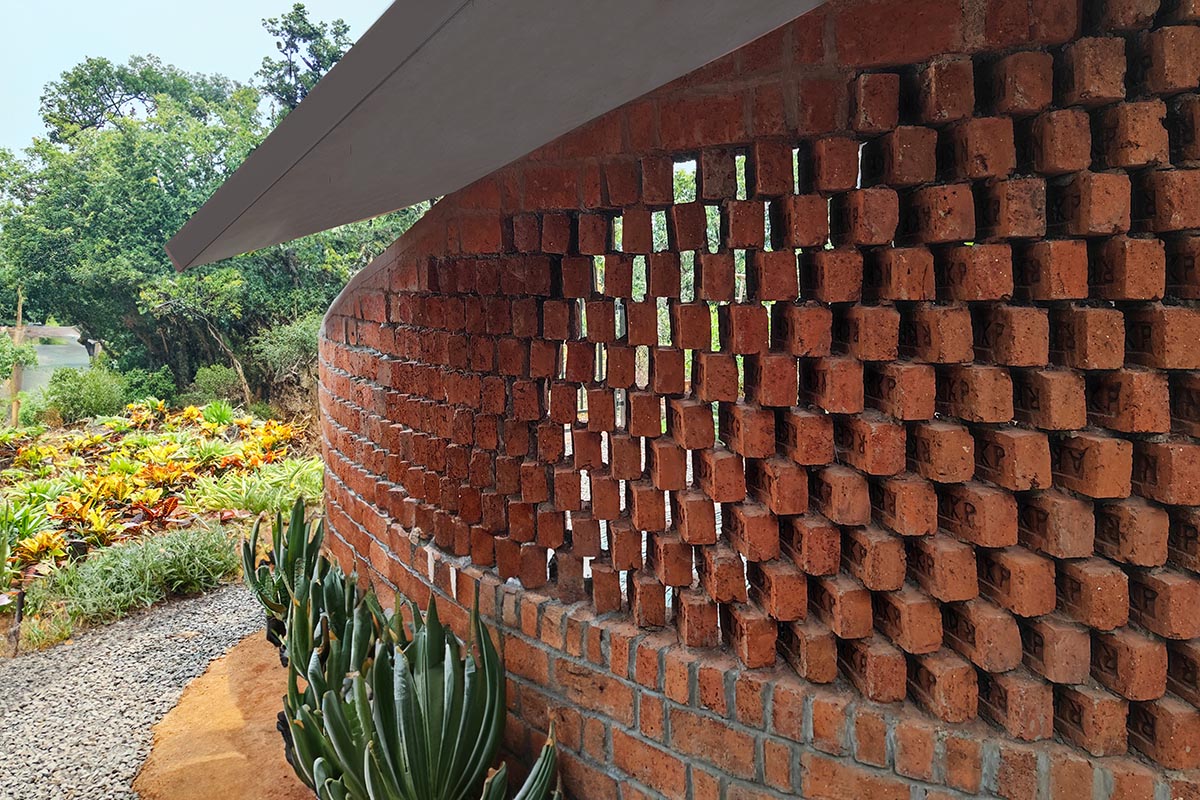
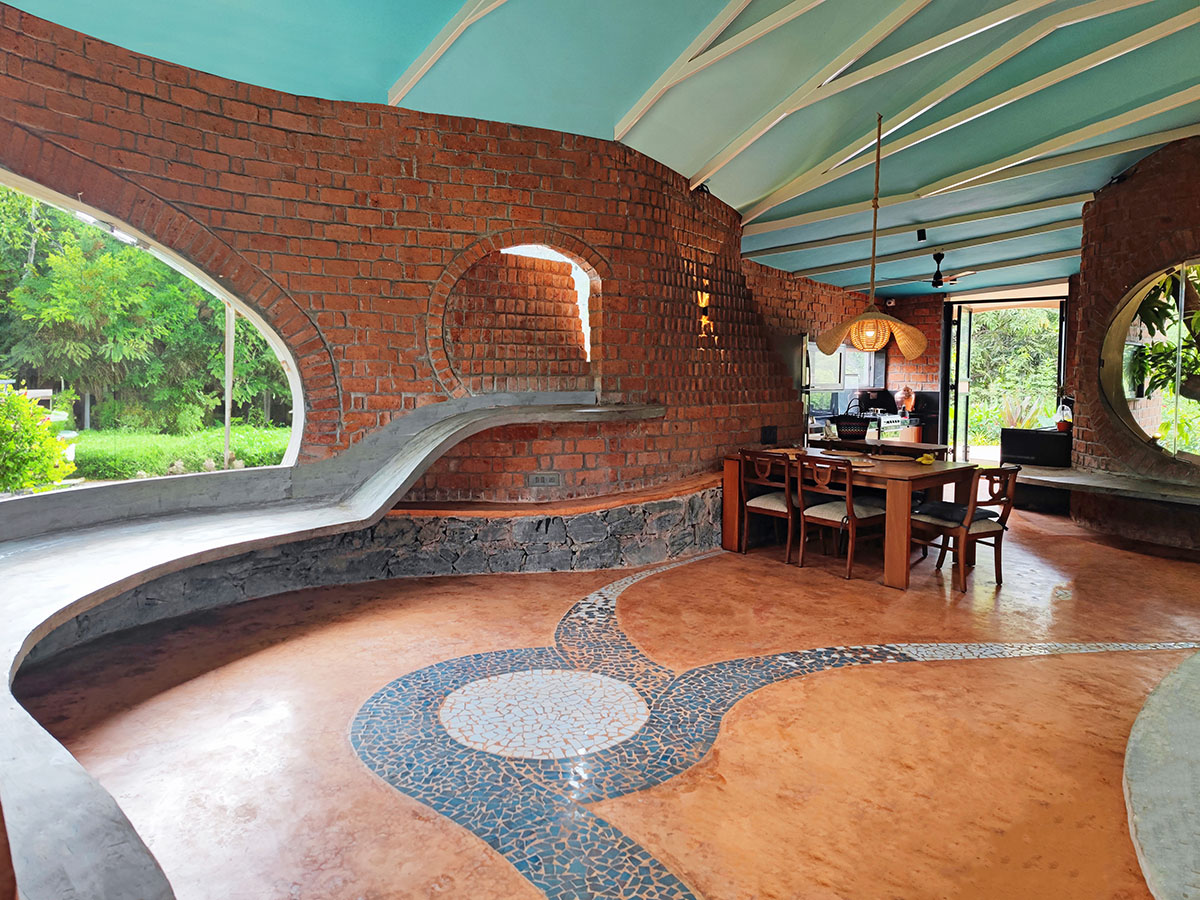
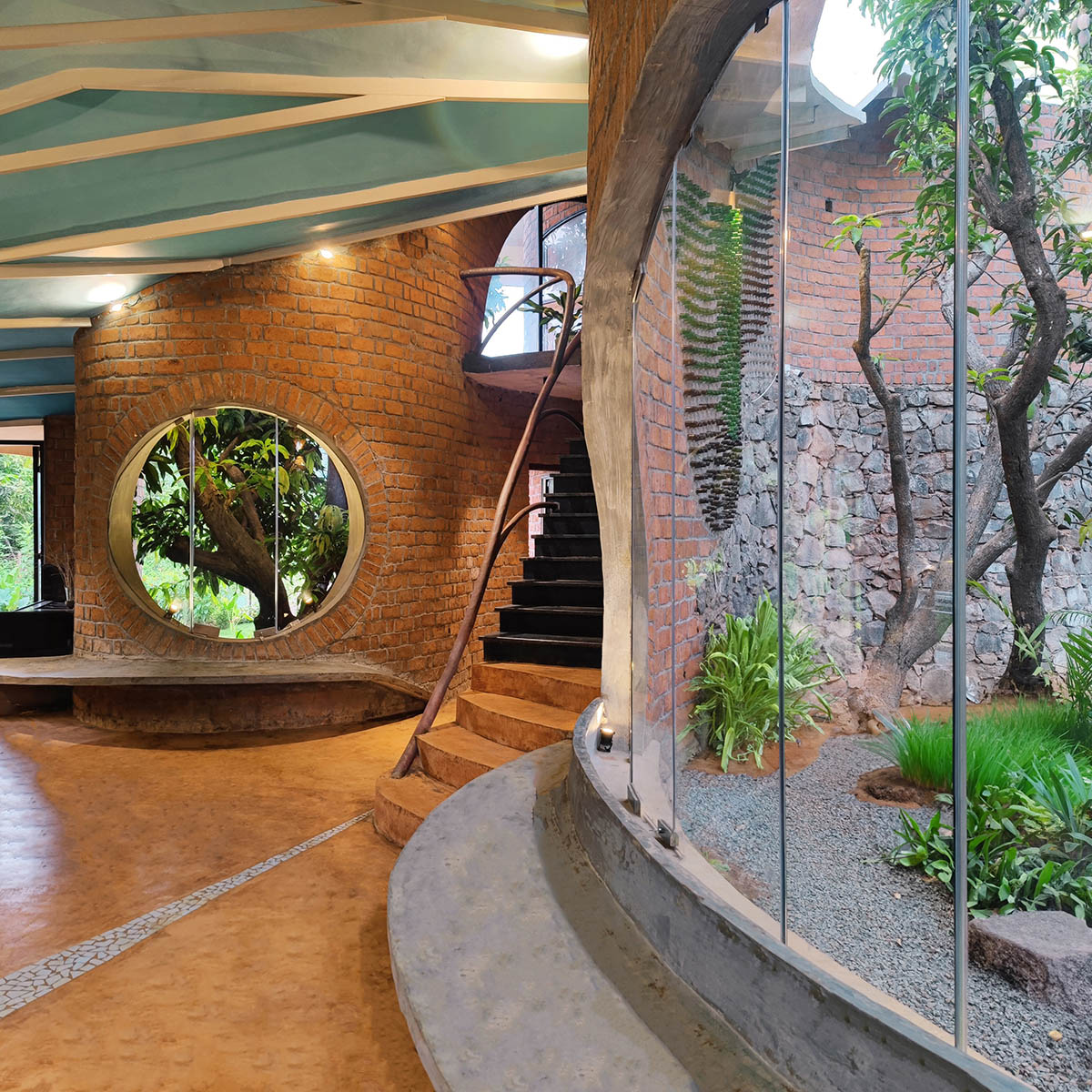
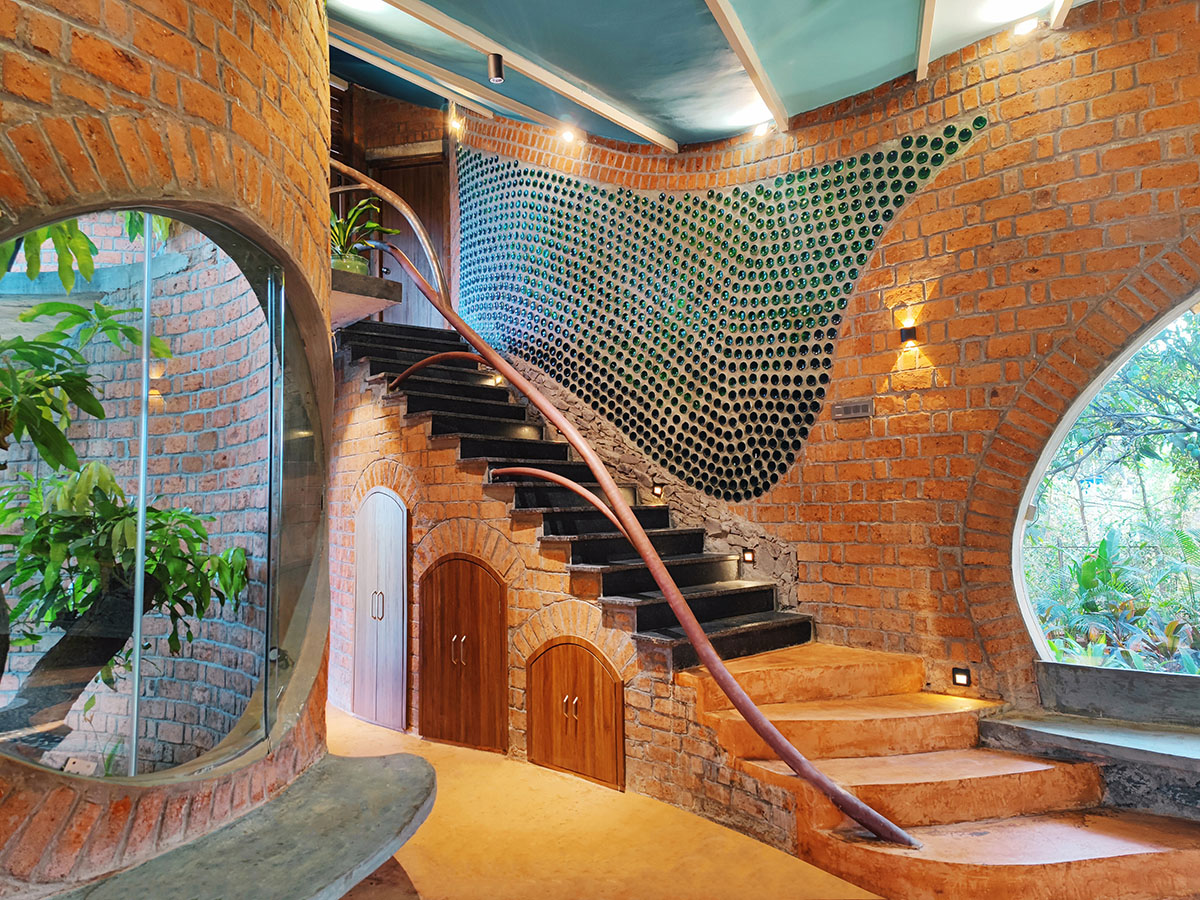

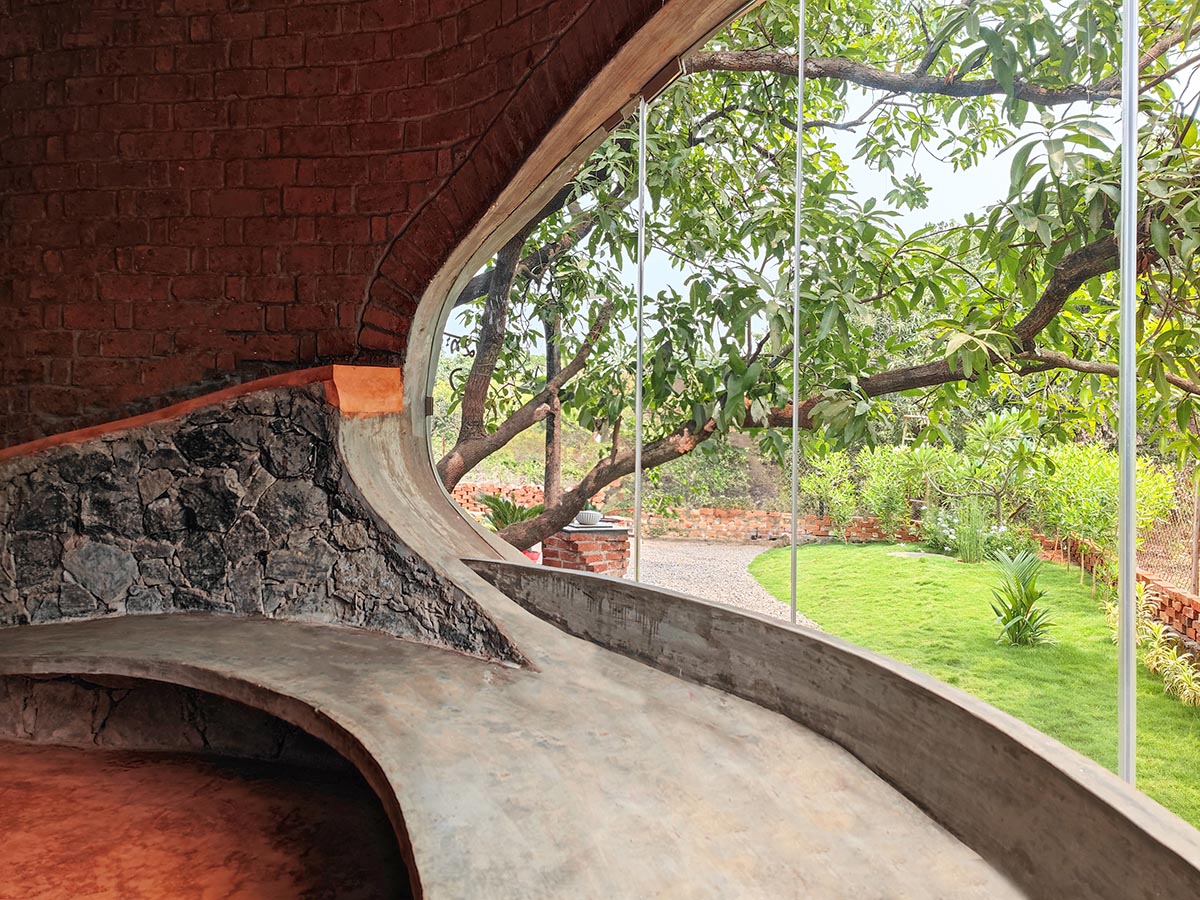
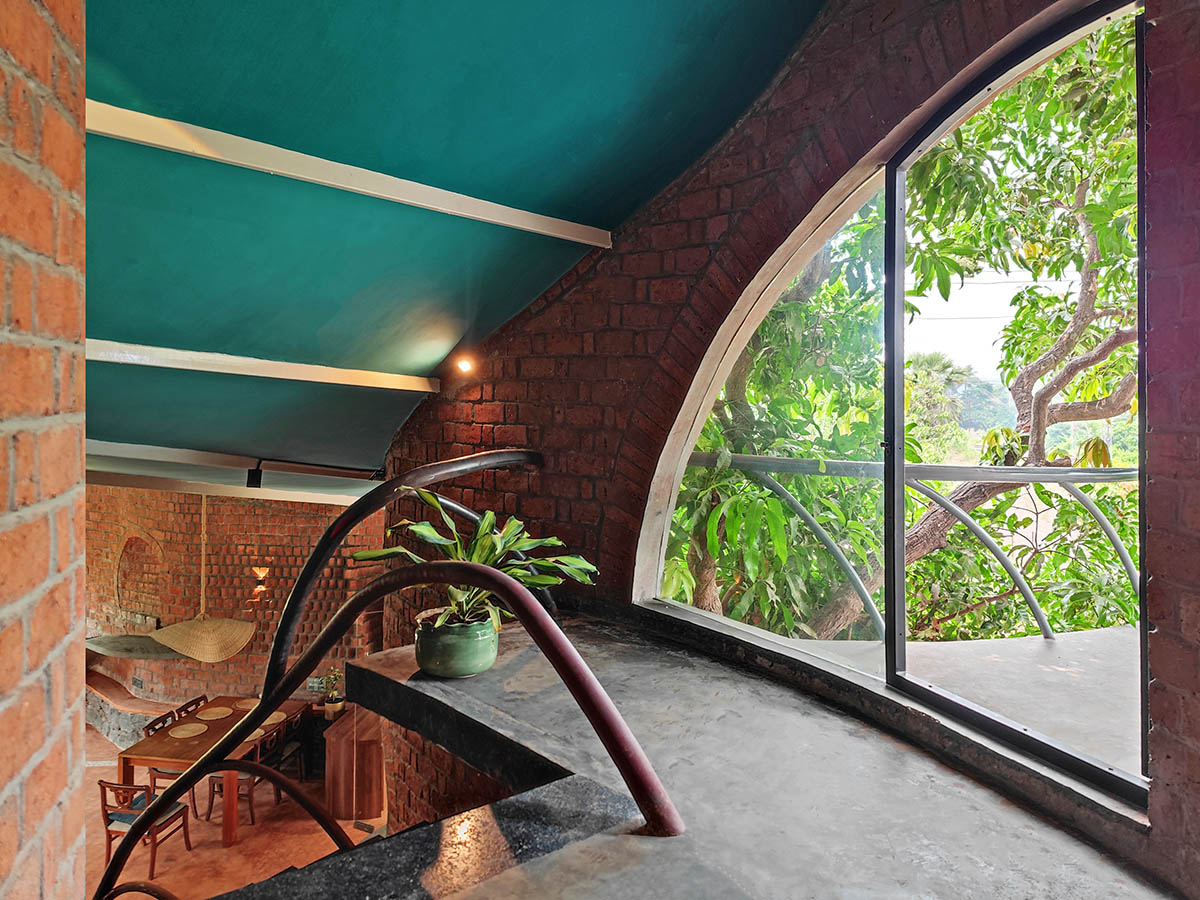
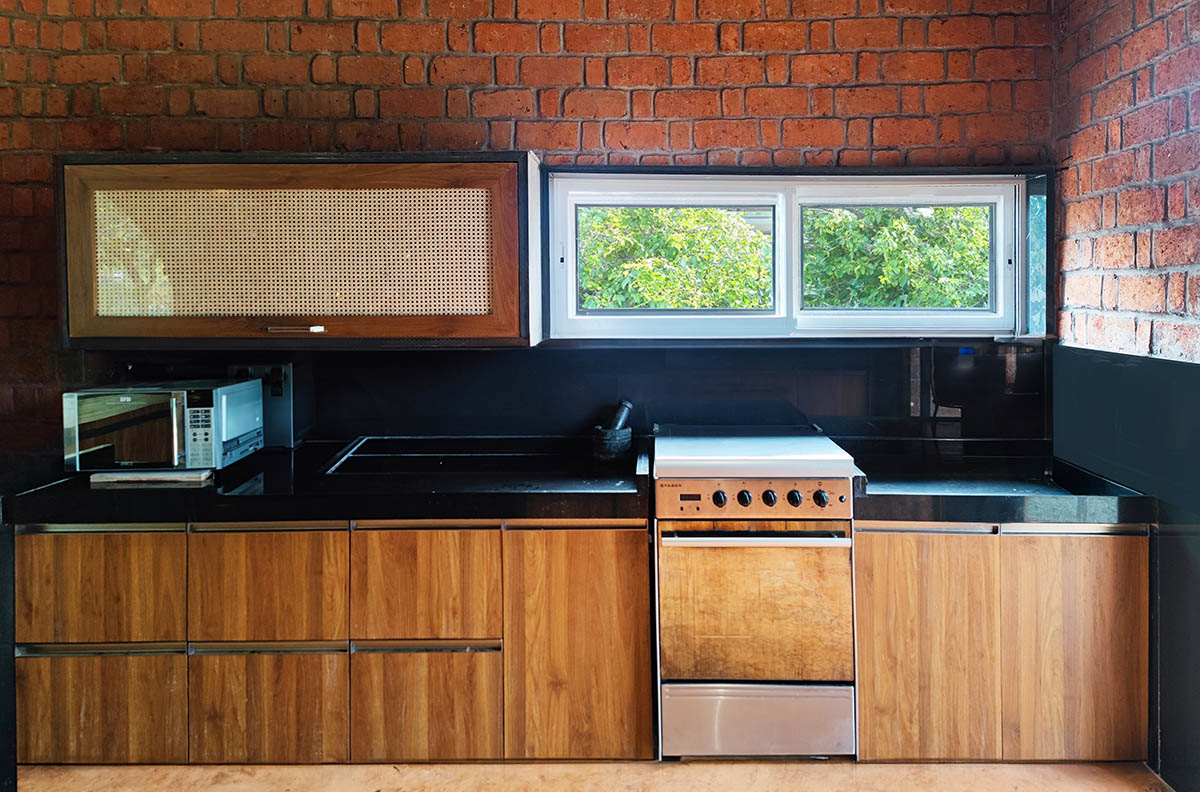
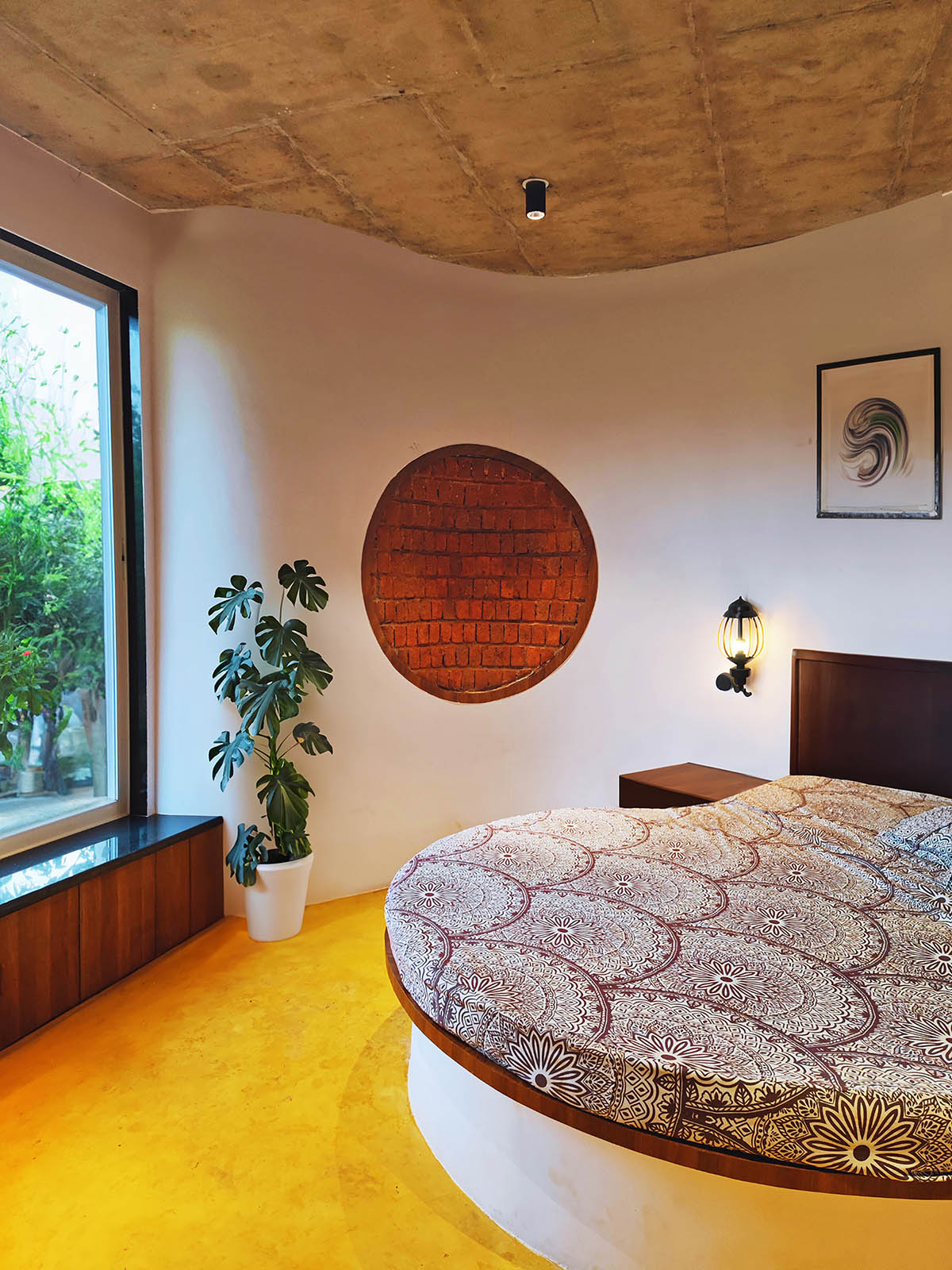
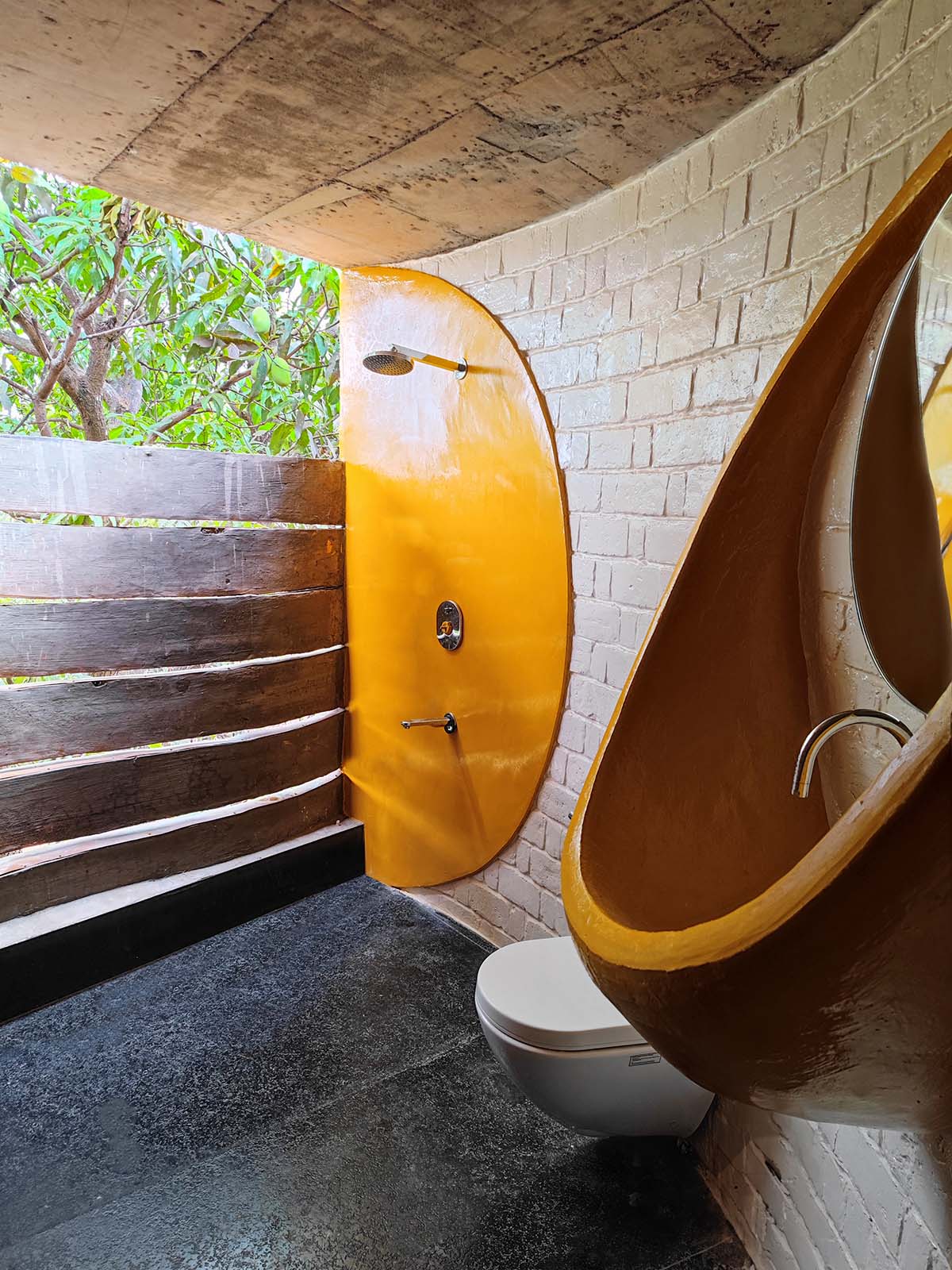
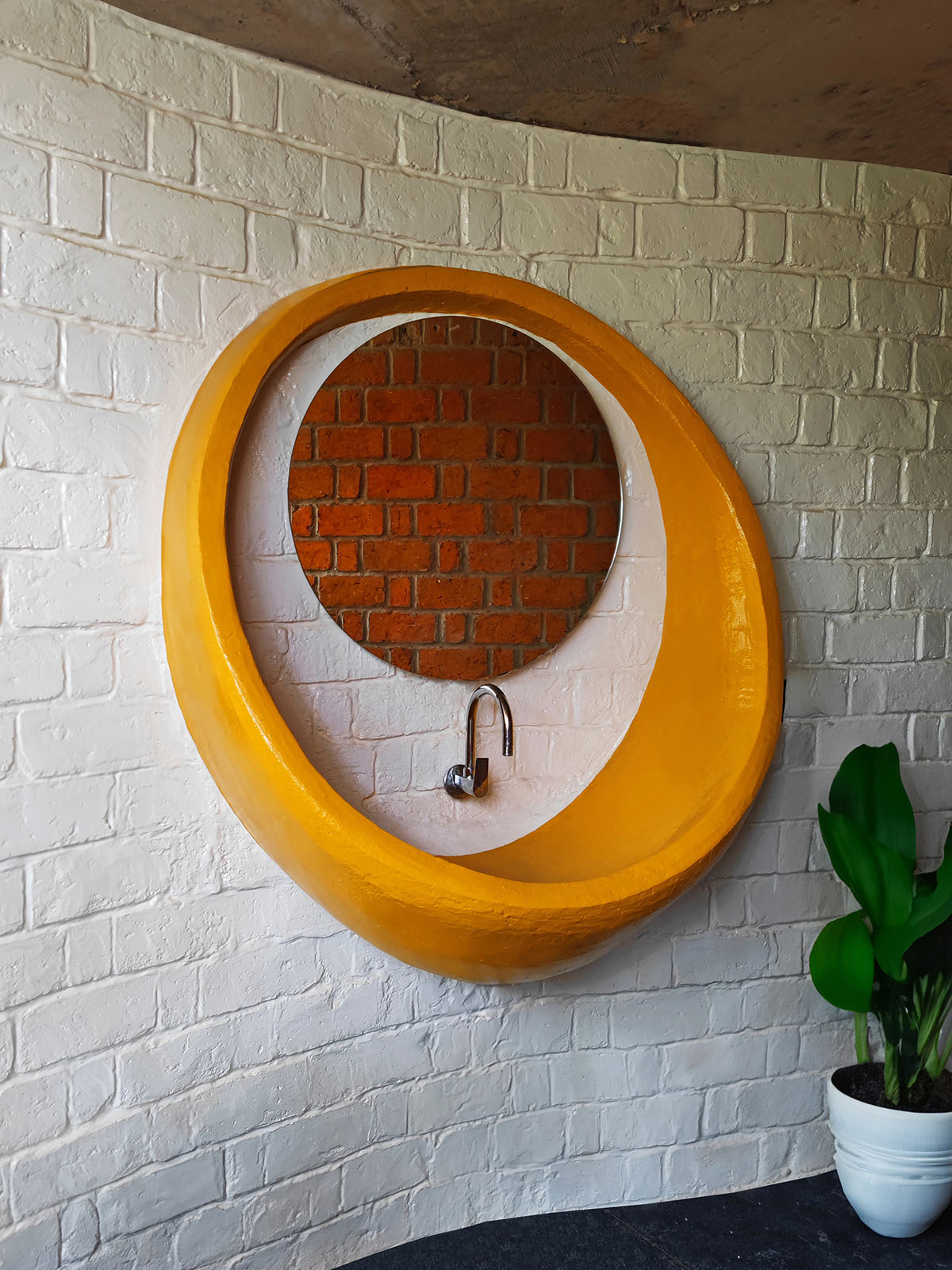
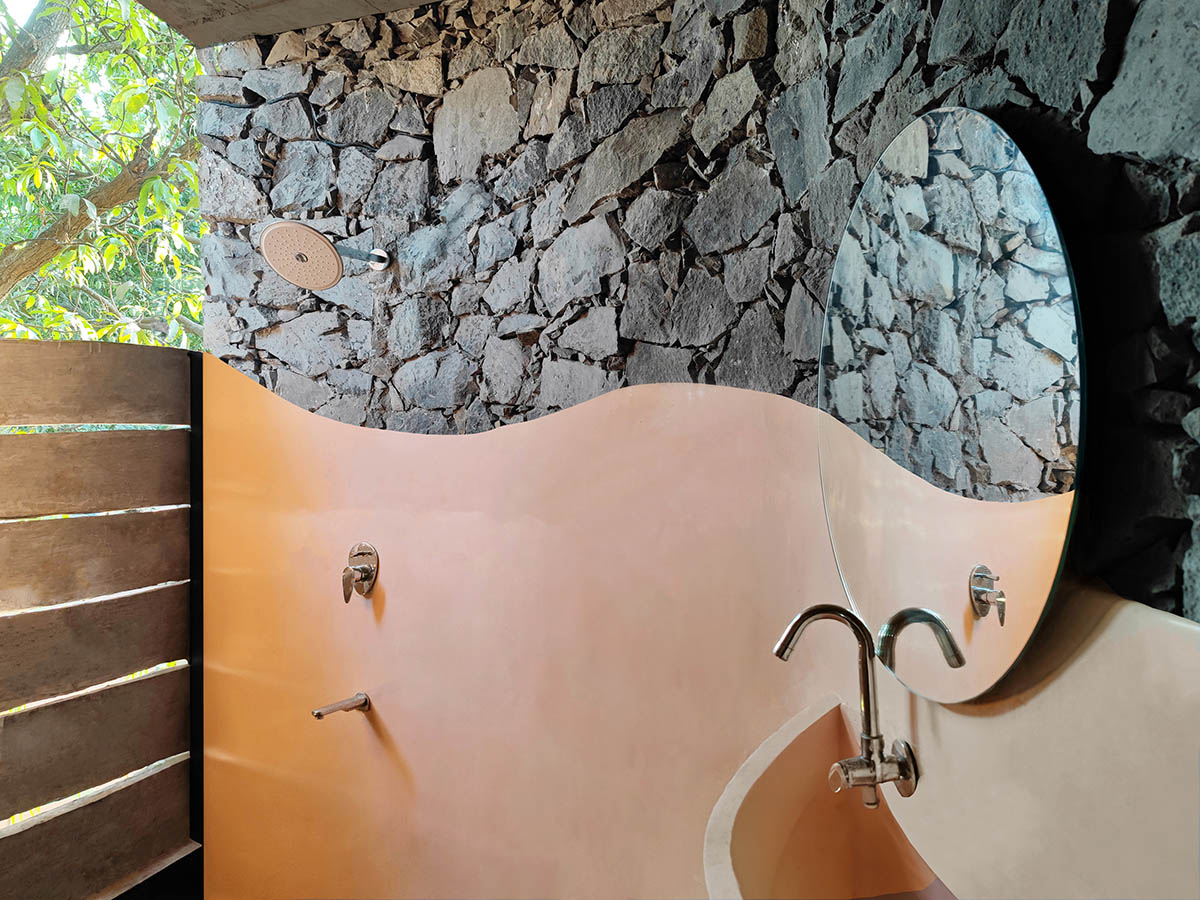
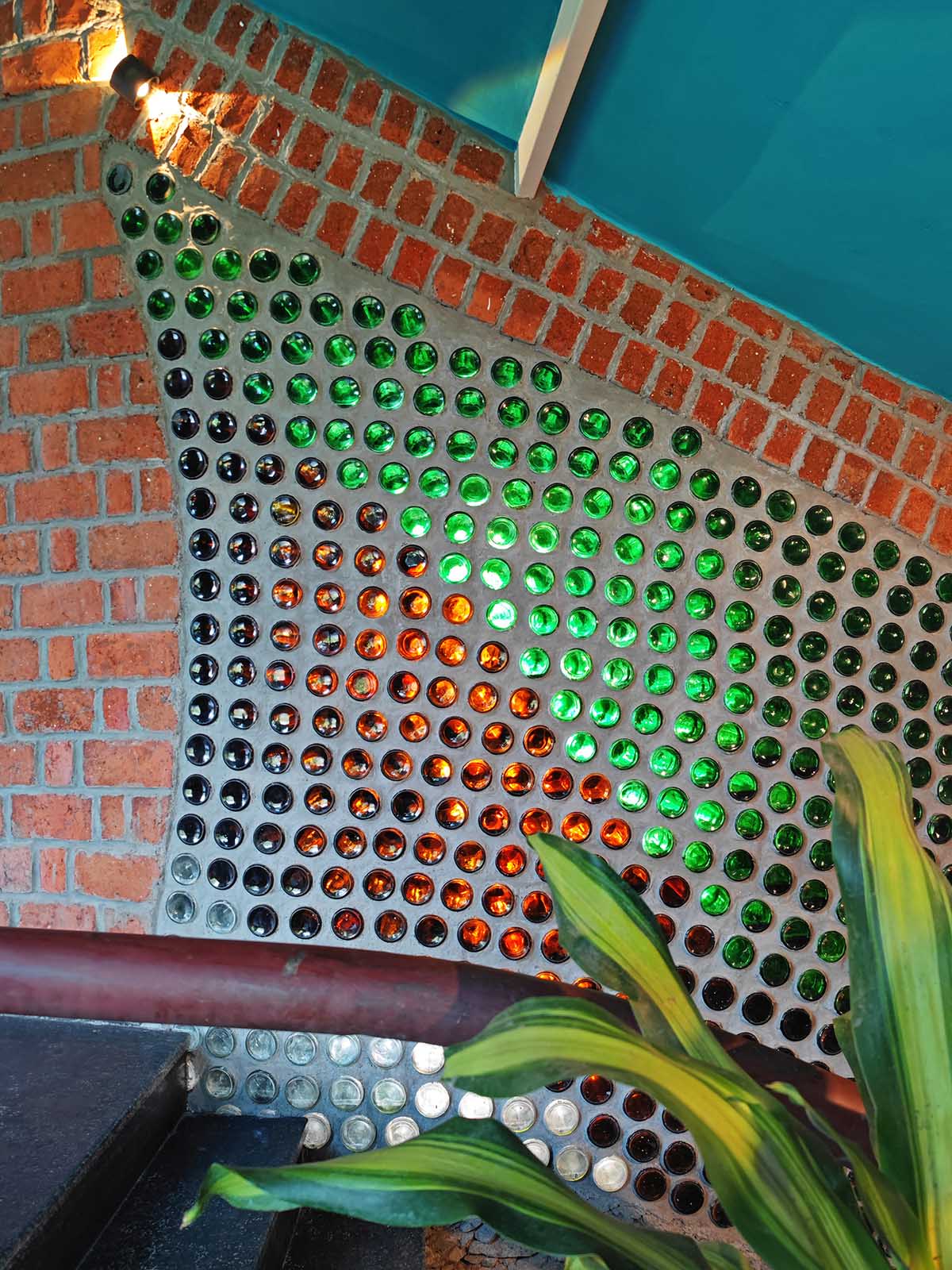
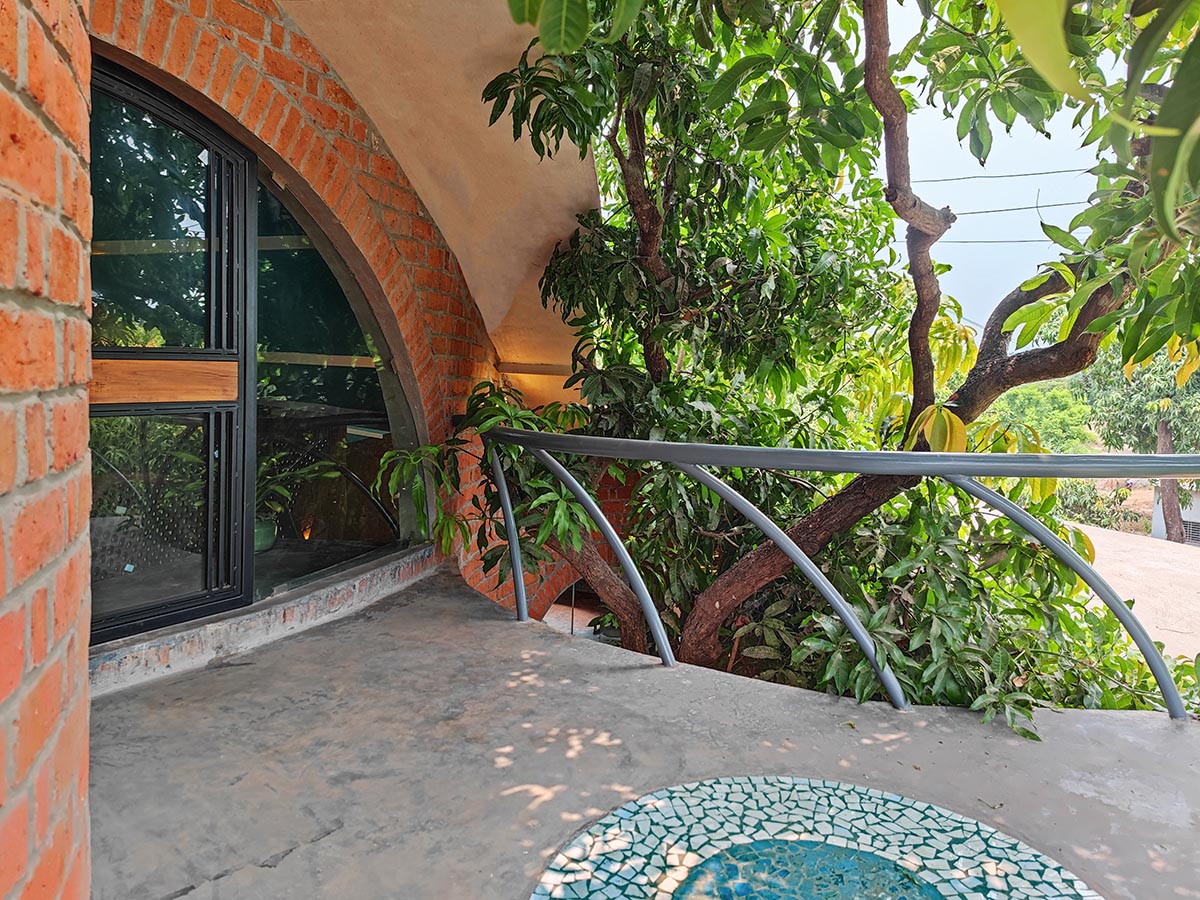

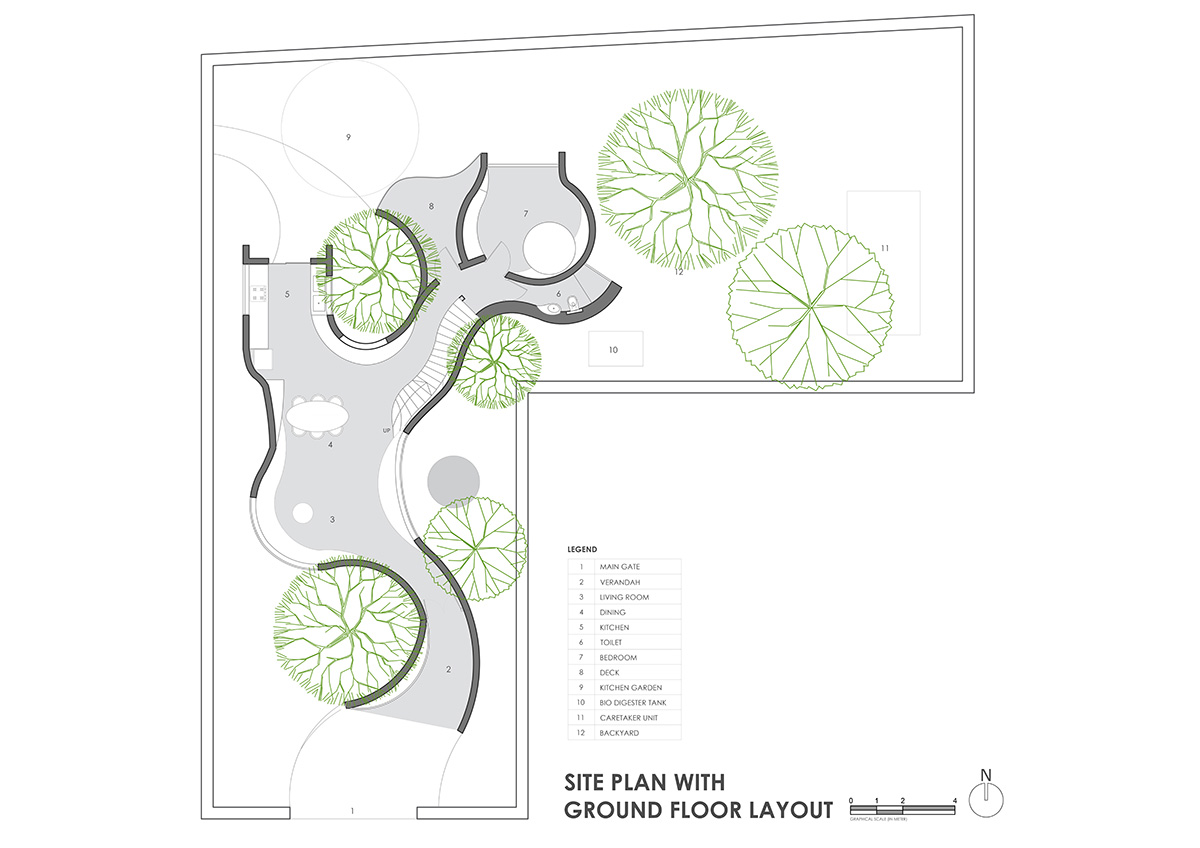
Ground floor plan
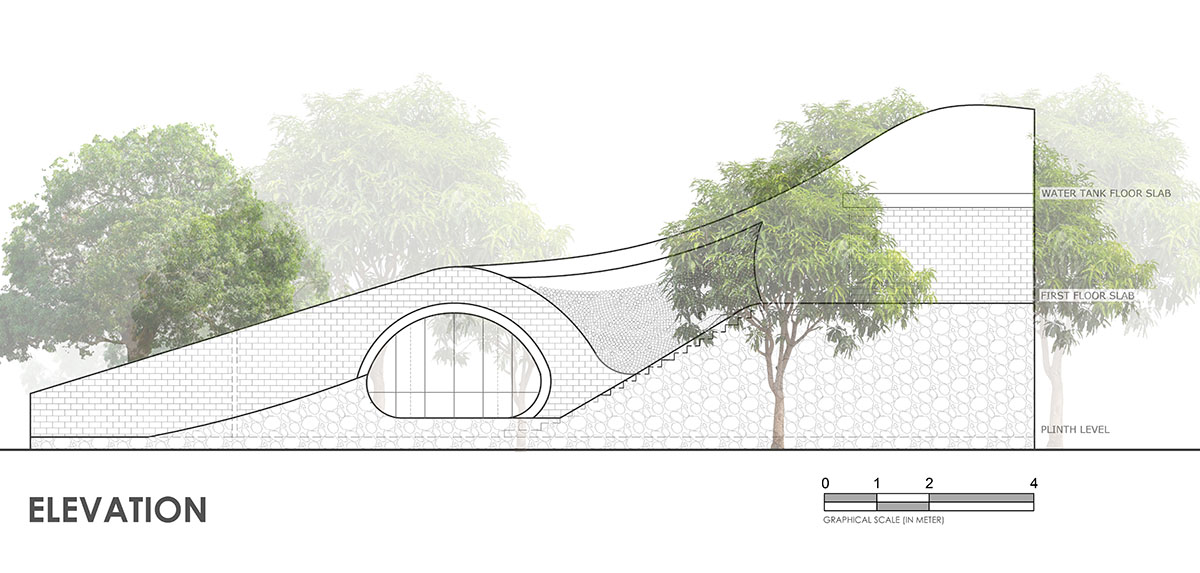
Elevation
Project facts
Project name: Asmalay
Architects: Blurring Boundaries
Location: Alibag, Maharashtra, India
Completion Year: 2023
Gross Built Area (m2/ ft2): 2000 ft2
Lead Architects: Prashant Dupare, Shriya Parasrampuria
All images © Prashant Dupare.
All drawings © Blurring Boundaries.
> via Blurring Boundaries
